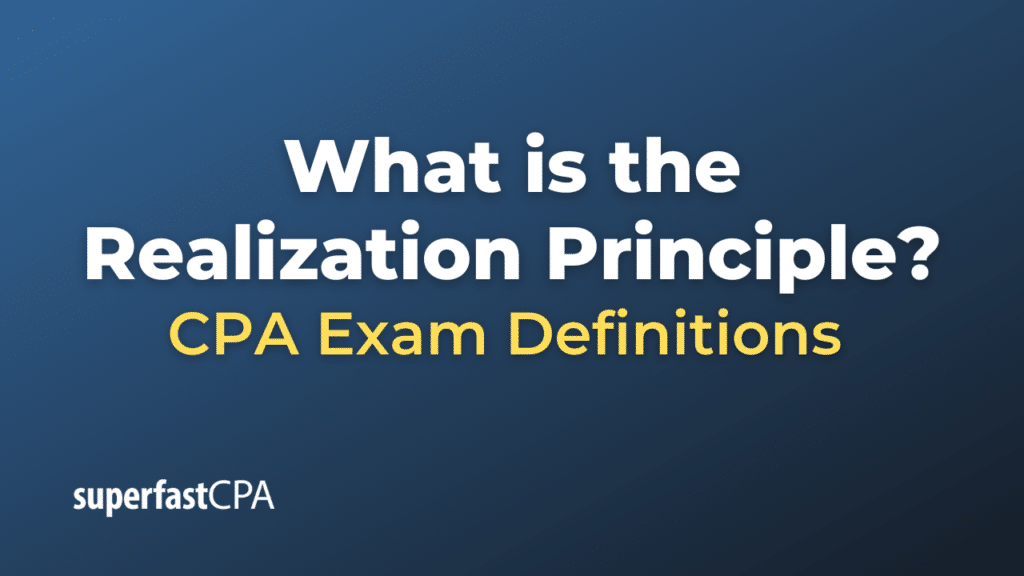Realization Principle
The Realization Principle is a fundamental accounting principle that outlines when revenue should be recognized in the financial statements. It’s one of the cornerstones of accrual accounting, which aims to match revenues with the expenses incurred in earning those revenues, ensuring that financial statements provide a clear and accurate representation of a company’s financial performance over a period.
The key aspects of the Realization Principle are:
- Criteria for Revenue Recognition: Revenue is recognized when:
- The product has been delivered or the service has been rendered, signifying the completion of the earnings process.
- There is reasonable certainty or expectation regarding the collection of the payment.
- Separation of Realization from Cash Collection: According to this principle, revenue recognition is not necessarily tied to the receipt of cash. Revenue can be recognized even if cash has not been received, as long as the above criteria are met. This is often the case with credit sales.
To understand the Realization Principle more clearly, consider the common business practice of selling goods on credit. When a company sells a product on credit, it has fulfilled its part of the transaction by delivering the product. As long as there’s a reasonable expectation that the customer will pay, the company can recognize the sale as revenue, even if the payment will be received at a later date.
This principle ensures that revenues are recorded in the same accounting period as the expenses incurred to generate them, providing a coherent and comprehensive view of a business’s profitability. It also ensures that companies don’t prematurely recognize revenue or delay its recognition, both of which could distort the true financial performance of the entity.
The Realization Principle, combined with other revenue recognition criteria, ensures that financial statements are consistent, comparable, and transparent, allowing stakeholders to make informed decisions based on accurate financial information.
Example of the Realization Principle
Let’s illustrate the Realization Principle with a scenario:
Imagine a company named “BookWorld Inc.” that sells books online. On September 1, 2023, a customer places an order for a set of books priced at $100. The customer chooses the option to pay on delivery (POD). BookWorld Inc. delivers the books on September 5, 2023, but the customer only makes the payment on September 10, 2023.
- September 1, 2023: The order is placed, but the books haven’t been delivered yet. Even though there’s a commitment from the customer, BookWorld Inc. cannot recognize the revenue at this point because the earnings process is not complete.
- September 5, 2023: The books are delivered to the customer. Now, two main criteria of the Realization Principle are satisfied:
- The product (books) has been delivered.
- There’s a reasonable certainty of payment since it’s a POD order.
- September 10, 2023: The customer pays $100 upon receiving the delivery. On this day, BookWorld Inc. sees the cash inflow, but this doesn’t change the revenue figure in the income statement because the revenue was already recognized on September 5. Instead, the cash receipt impacts the balance sheet, moving the amount from “Accounts Receivable” to “Cash.
This example demonstrates the Realization Principle in action. Revenue is recognized when the earnings process is essentially complete (books delivered) and there’s a reasonable expectation of payment, not necessarily when cash is collected.













